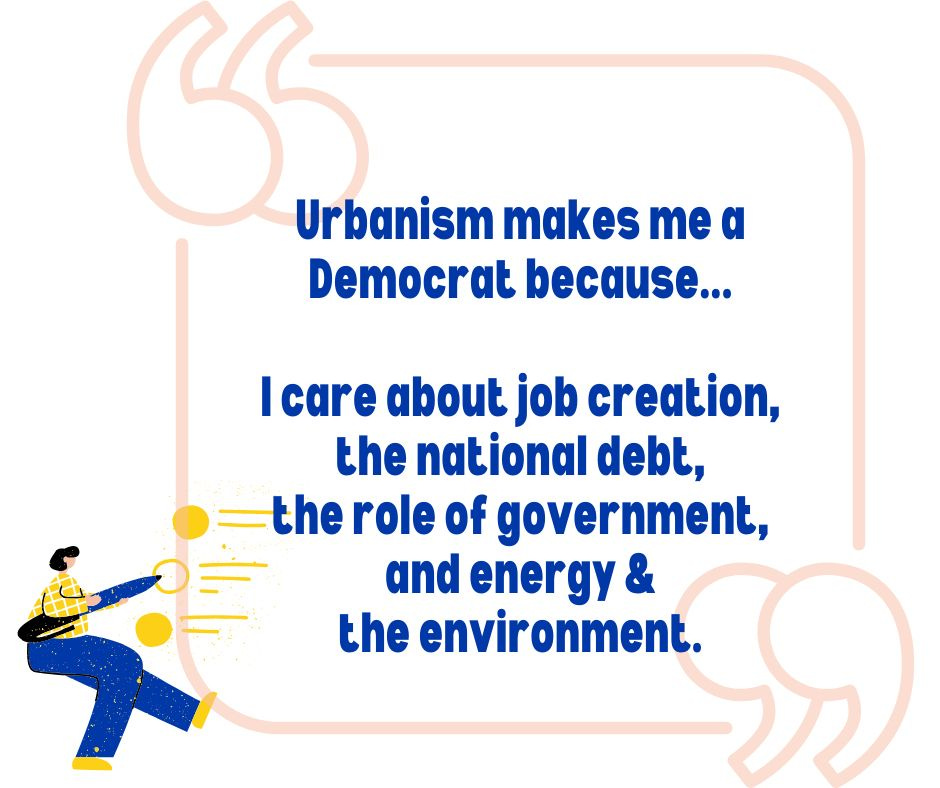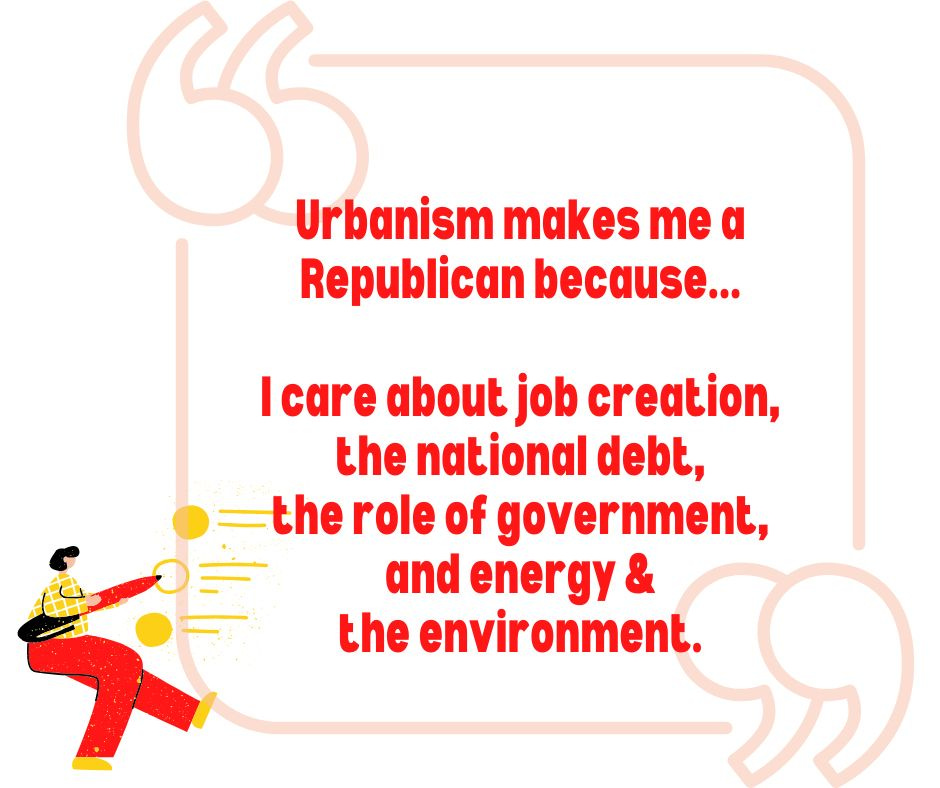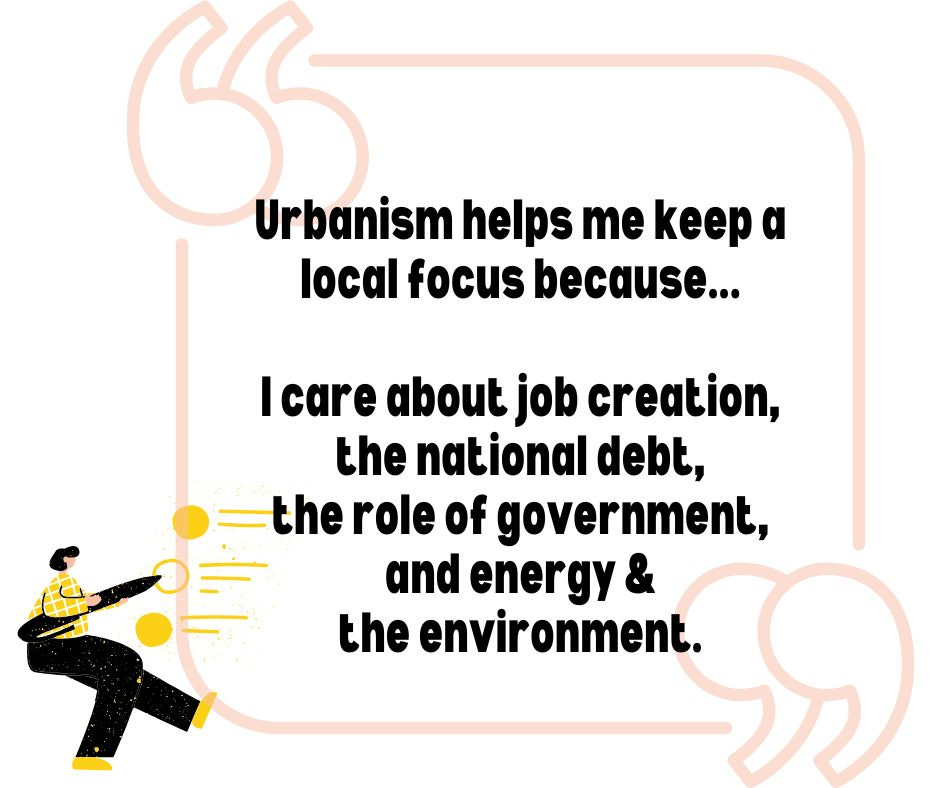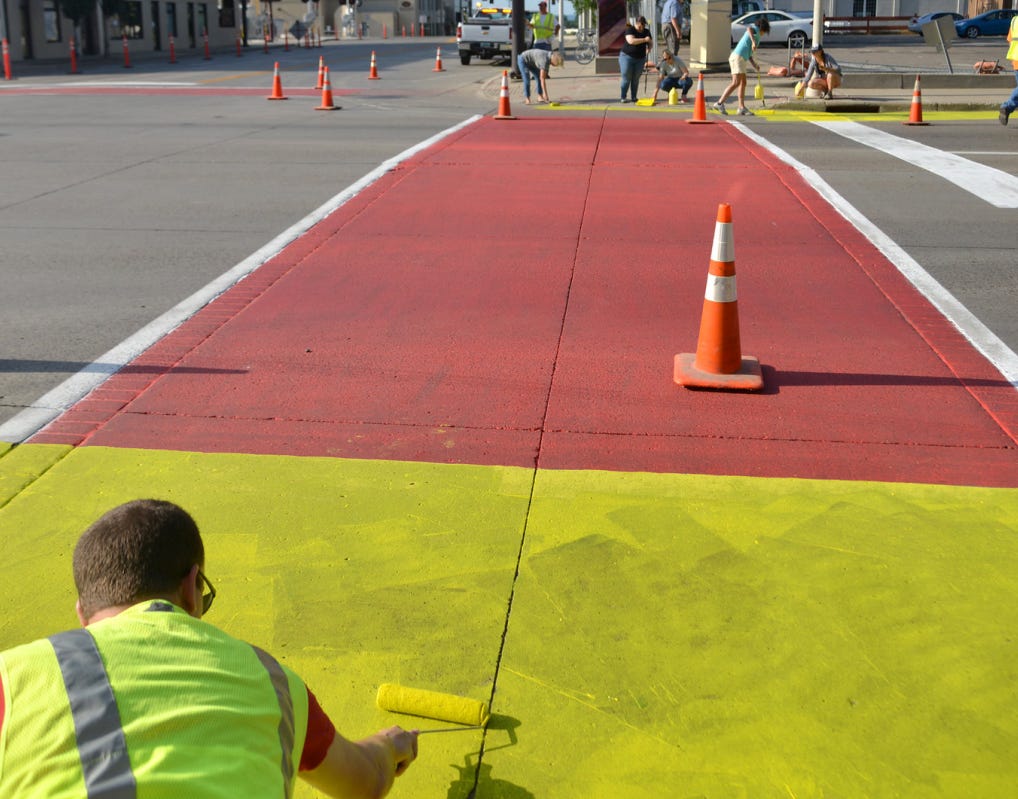Get out the vote (or don't)
How urbanism fits into the national political theater (or doesn't)
Election season is a big-time show in the United States. Political campaigning is like a theater program for entertainers who might have had a career in Hollywood if they had better agents. Candidates focus their energy on a handful of issues that their polling data says people care about. Job creation, the role of government, energy and the environment are a few that have grabbed plenty of headlines year over year.
Democrats support this, Republicans support that. Liberals oppose this, conservatives oppose that. The degree to which political parties are fundamentally different or very much alike is an entirely separate conversation.
Two weeks from today is November 5, 2024, marking an occasion for Americans to vote for their preferred candidate while criticizing people who vote for a different candidate. “As a _insert any personal trait, hobby, opinion, or religion here_, how could you vote for them?!” Most of the energy and angst is directed to national policies, even though most of our day-to-day lives are directly impacted by local and regional policies.
It’s fun and refreshing to read about old-timey politics where candidates ran on issues rather than parties. They formed for specific reasons and disbanded after either accomplishing goals or being squashed by the electorate. The current setup in the US is to support a long list of bundled issues: “If you support this issue, you must also support these 30 other positions.” You and I probably won’t see that change in our lifetime.
But national elections, volatile and emotional as they are for some people, don’t fundamentally change urbanism issues. Neighborhood design, transportation options, housing variety, education options, access to nature, access to healthy food, opportunities for physical activity, opportunities for employment…this stuff doesn’t arrive or disappear based on which team wins the presidency or congressional seats. Human flourishing through good urbanism is possible regardless of how this national political theater turns out.
With that in mind, I thought it might be a useful exercise to put urbanism sticky notes on three types of Americans at the voting booth: the Democrat, the Republican, and the Politically Homeless.
Disclaimer: The transcribed monologues from the voices in my head have not been validated or sanctioned by any politician or political party or power broker. You may or may not be entertained or offended by my generalizations and caricatures. Individuals cast ballots during elections at their own risk.
The Democrat
Job creation
I don’t mind if jobs are created by expanding government agencies. I want to see more Americans working and earning wages. But I realize that not all paying jobs are good for society. For example, I’m pretty sure that a hit-man employed by a gangster is not a good job to create.
I support jobs that help people. Sometimes jobs are created for construction workers to demolish the homes of one group of people because a powerful group of people thinks it’s a good idea. I want to see jobs created that support and enhance local communities, not jobs that will pay for their destruction.
Role of government
A national debt of $14 trillion is hard to comprehend. Most of the Democrats running for office are talking about raising taxes on the wealthy. I’m more concerned about how the government spends the money it collects.
In my state, I read far too many reports about “shovel ready” infrastructure projects that strike me as a waste of money. If a project was designed back in the early 90s in a completely different regulatory climate, why should we hurry up and build it now? I want a candidate focused on locally-oriented initiatives that avoid discrimination towards certain members of the community.
Energy and the environment
For most people in my region, driving alone to work is the only practical option. But it bothers me that our country is heavily reliant on fossil fuels and foreign oil. I’m not expecting to see cars banned from roads, but if my neighborhood was closer to work, I’d walk and bike a lot more. Well, closer to work and with safer streets.
Am I so radical for wanting to do my little part for the environment around me? My suburban streets look like highways, so it’s probably too dangerous to try anything other than driving. I’d like a candidate who wasn’t so quick to promote the steady erosion and removal of natural habitats to make room for wider and wider highways in my backyard. I want my candidate to think about smarter, more efficient ways for people to move around and connect with each other.
The Republican
Job creation
Government shouldn’t grow to create more jobs. I want to see more Americans working and earning wages, and that means private companies need to have reasons to hire people. But I don’t want a candidate to encourage jobs for the sake of jobs. Some jobs are downright evil. There isn’t a market to pay delinquents to egg houses, is there?
I watched a documentary that retold the story of an entire neighborhood displaced because some government agencies forced them out of their homes to make way for a new highway and a different type of development. I want my candidate to promote jobs that support and enhance local communities, not jobs to obliterate private property or force people to move.
Role of government
In this lousy economy, I have to be very careful with my personal checking account. I’d like to see the government do the same. Most of the Republicans running for office are talking about taxes, but what about cutting spending to programs that do more harm than good?
In my state, we like to compete for federal funds so that the press won’t make fun of us for leaving cash on the table. But I don’t think the federal government should decide how to revitalize my community. I want a candidate focused on locally-oriented initiatives that don’t rely so much on the federal government’s debt-ridden budget.
Energy and the environment
I hear a lot of talk about fossil fuel alternatives and renewable energy. Like most people I know, those sound like reasonable pursuits. But the regulatory environment still favors massive infrastructure projects that promote and even require the continued reliance on multi-car households.
I want to vote for a candidate who is interested in scaling back regulations so that infill development flourishes and I can have more choices about where to live and how I commute. I’d like to see streets designed for slower traffic where I could actually walk on a sidewalk with my family and feel safe. I want my candidate to think about smarter, more efficient ways for people to move around and connect with each other.
The Politically Homeless
I’ve developed long-lasting relationships with my neighbors by working together on community projects. It doesn’t bother me if you like cheering and jeering at political theory. I’ll be spending quality time with the people closest to me:
Installing and enjoying the fruits of urban gardens.
Painting epic crosswalks without permission.
Printing affordable 3D housing right under the eye of Sauron.








